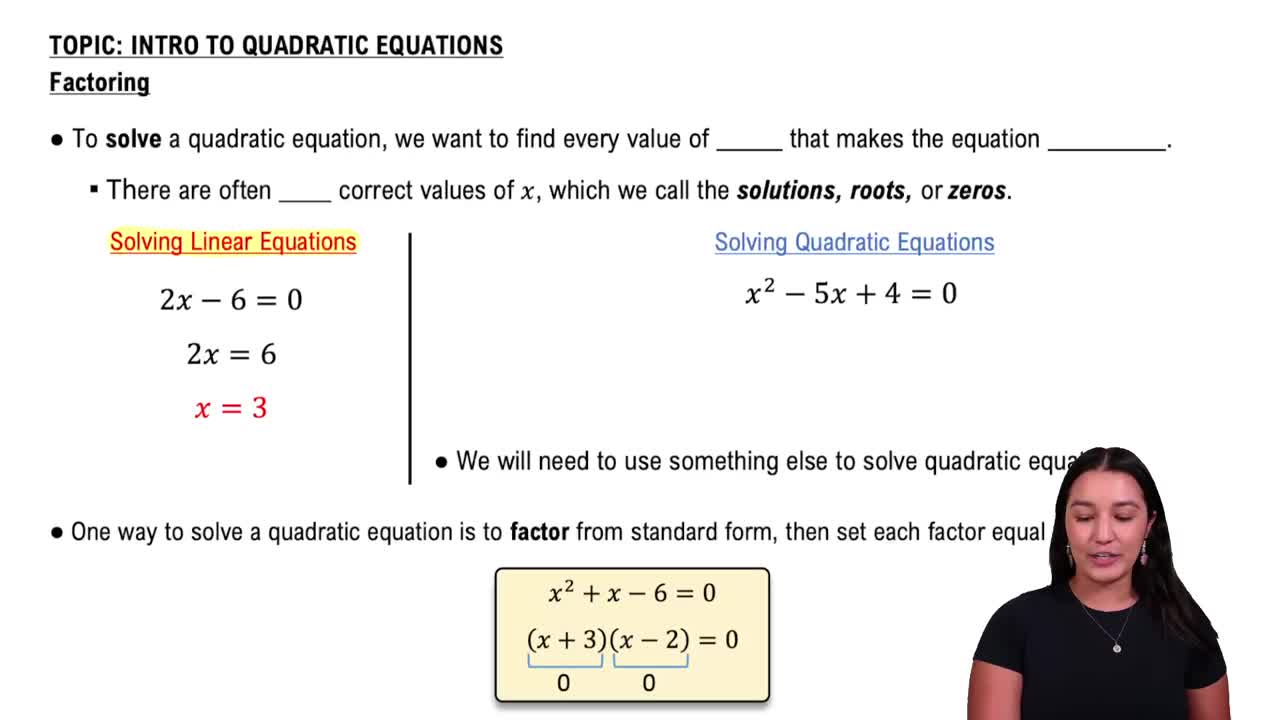Textbook Question
Perform the indicated operation, and write each answer in lowest terms. 2x/5 + x/4
530
views
 Verified step by step guidance
Verified step by step guidance Verified video answer for a similar problem:
Verified video answer for a similar problem:



 7:39m
7:39mMaster Introduction to Exponent Rules with a bite sized video explanation from Patrick
Start learning